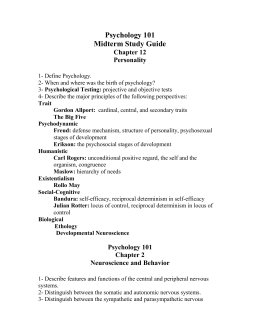Midterm Study Guidemr. Regan's Educational Website
Our website is a unique platform where students can share their papers in a matter of giving an example of the work to be done. If you find papers matching your topic, you may use them only as an example of work. Make sure you study a little each night from now until the midterm. Start with your notes and tests. While you’re at it, gather up any handouts or worksheets. If your midterm exam covers material from the whole year, then your previous tests will help you see what your teacher thinks is important.
Download file to see previous pages The paper will incorporate historical evidence to support this stance.Open door imperialism can be basically defined as the act of powerful nations controlling the lesser powerful nation in the world so as to primarily safeguard the powerful nations’ interests. America being the world’s superpower has applied the open door imperialism to most parts of the world where it can reach. Its military is crucial to the United States spreading open door imperialism. The Monroe doctrine was the first step towards American open door imperialism. The doctrine implied that the United States would consider any acts by European states to interfere or colonize lands in north and South America as aggression towards the USA. Also, the act stated that America in return would not interfere with the internal running or colonies of European nations. The Monroe doctrine subsequently became a defining element of the USA foreign policy. Later, the doctrine would be relied upon and invoked by various USA presidents such as Ronald Reagan, John F Kennedy, and Theodore Roosevelt.
Midterm Study Guidemr. Regan's Educational Website Page
Midterm Study Guidemr. Regan's Educational Website Login
Contained in the doctrine are two significant themes of manifest destiny and exceptionalism. These two themes refer to the power and right of America to interfere, correct or, exert its power and influence across the globe. This doctrine was therefore used by the United States in several instances to justify USA intervention abroad throught most of the 19th century. For instance, the USA was involved in the Hawaii annexation and the Spanish American war (McCormick, 1963). The Monroe doctrine consequently came to basically define the United States’ control sphere that very few countries dared or dare to challenge. Its definition expanded greatly as the United States gained more power. America enacted the big brother policy in the early 1880s with a major aim of rallying Latin American countries behind it. ...Download file to see next pagesRead MoreUnit 1: Origins of the American Nation Ch. 1, Lesson 1 (2 weeks)
European Colonization
English Colonies
Colonial Government Traditions
Enlightenment Philosophers and their influence on the Colonists
French and Indian War
Taxes
Boston Massacre/Tea Party
Declaration of Independence
Revolutionary War
Unit 2:The Young Republic: Ch. 1, Lesson 2 (2 Weeks)
Articles of Confederation
Constitutional Convention
Federalists and Anti-Federalists
Constitution
Branches of Government
Federalism
Bill of Rights
Election of 1800
Political Parties
Unit 3: Antebellum America, Sectionalism and the Civil War: Ch.1, Lesson 3, 4, 5 (2 weeks)
Missouri Compromise
Life in the North and the South
Andrew Jackson
Manifest Destiny
Slavery and the West
Sectionalism
Dred Scott
The Civil War
Emancipation Proclamation
Reconstruction - 13th, 14th, 15th Amendments
Unit 4: Settling the West: Chapter 2, (1 week)
Miners and Ranchers
Farming
Native Americans
Unit 5: The Gilded Age and Progressivism: Chapter 3, 4, 5, 6 (2 Weeks)
Industrial Revolution
Railroads
Robber Barons and Big Business
Unions
Immigration
Urbanization
Reform Movements
Segregation - Plessy vs. Ferguson
Imperialism
Progressivism and Reforms
Midterm

Unit 6: World War I, 1920’s, The Great Depression, and the New Deal: Ch. 7, 8, 9, 10 (2 Weeks)
WWI
Woodrow Wilson
Treaty of Versailles
1920's Culture/Trends
Values and Prohibition
Stock Market Crash
The Great Depression
The Dust Bowl
Franklin Roosevelt
The New Deal
Unit 7: World War II and it’s Aftermath: Ch. 11, 12 (3 Weeks)
Beginnings/U.S. Involvement
The Holocaust
Life on the Homefront
Japanese Internment
Major Battles
Atomic Weapons
End of the War and Aftermath
Unit 8: The Cold War: Ch. 13, 15:2, 17, 19:1, 20:2, 20:4 (2 Weeks)
Korean War
Red Scare
John F. Kennedy
Bay of Pigs
Cuban Missile Crisis
The Great Society
Civil Rights Movement
Martin Luther King Jr.
Vietnam War
Protests and Counterculture
End of the Cold War
Unit 9: Civil Rights Movement: Ch. 16 (1 Week)
Jim Crow
Rosa Parks
Brown vs. Board of Education
Montgomery Bus Boycott
Little Rock Nine
Sit-ins
Freedom Riders
Martin Luther King Jr.
Black Power
Unit 10: Passage to a New Century: Ch. 19-22 (1 Week)
Richard Nixon
Watergate
Ford and Carter
Reagan and Conservativism
Information Revolution
Bill Clinton
Immigration Law
Election of 2000
September 11th, 2001
War on Terror - Iraq and Afghanistan
FINAL ASSESSMENT
